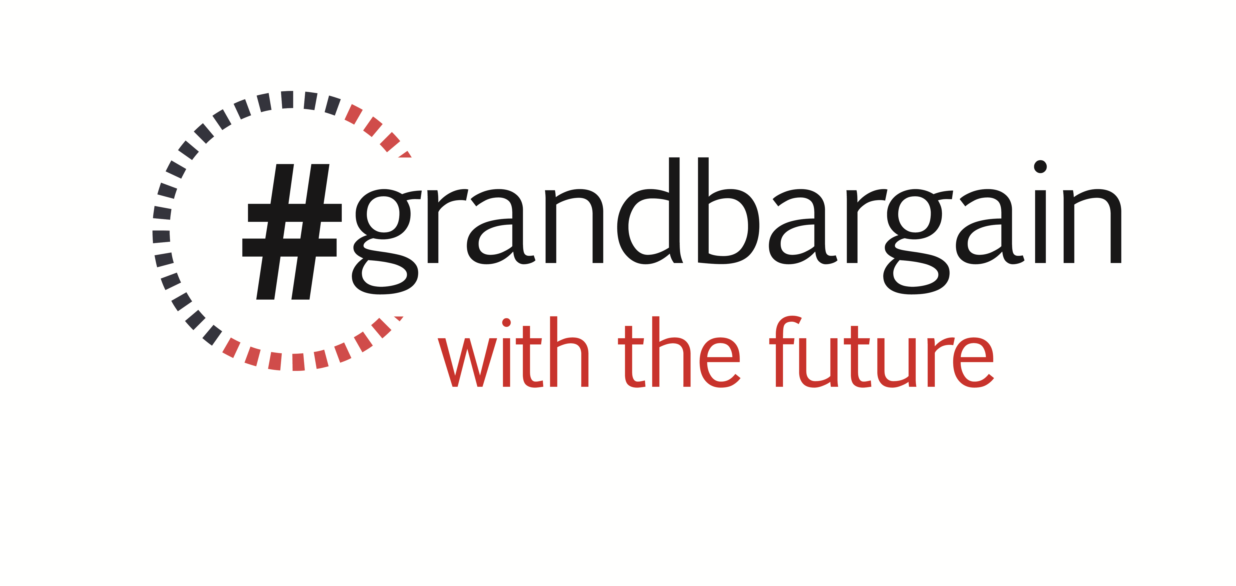By Sean Lowrie, Director of the Start Network
In a more turbulent and uncertain world, people everywhere desire the ability to respond to the suffering of their neighbours in times of humanitarian crises. Today’s escalating and changing humanitarian needs demand a much bigger, whole-of-society approach. A common NGO position for the Grand Bargain at the World Humanitarian Summit would describe a 21st Century humanitarian system which would enable every humanitarian to make a contribution.
Yet at the same time, no one desires a chaotic, wasteful, and dangerous ‘free-for-all’ either. A common NGO position must include an organising logic that maximises the advantageous potential of a diverse population of organisations, and minimises the disadvantages. Two principles are therefore fundamental: local leadership; and subsidiarity. A range of technical solutions already exist to ensure there is two-way communication between providers and recipients. In addition, we need new locally controlled funding mechanisms that: 1) place power in the hands of local people, 2) provide governments with the assurance of a coherent and effective crisis response; and 3) ensure the higher systemic elements treat them like customers.
Competition for inadequate resources and a preference for organisational independence have together become the Achilles heel of NGOs. NGOs must choose interdependence and collaboration as the means with which to build a new humanitarian economy that will mobilise new forms of capital on a scale which is commensurate with 21st Century humanitarian needs.
Some ¾ of today’s humanitarian action is delivered by NGOs. The humanitarian aid system is constructed upon a population of civil society organisations. Governments are the duty bearers for humanitarian assistance. Yet in a turbulent and uncertain era of escalating humanitarian need; governments need a resilient humanitarian system. A resilient system would have built-in redundancy and multiple delivery channels that together create an ecosystem of statutory, voluntary, professional and amateur actors. Today’s population of national and international NGOs therefore should be seen as an asset.
Today’s population of NGOs involved in humanitarian action requires re-balancing. More capability should exist at the national level; and international capability should be specialised and consolidated. These goals should be achieved through natural selection. The forces of natural selection can be created though an international network of national level NGO consortia that control and allocate resources based on objective and impartial processes. Organisations that deliver value in this new economy will survive. Those that don’t won’t.
Only a transformed economy for humanitarian action will transform humanitarian action. Only the capital markets have the scale of resources needed, and the ability to create incentives that will transform organisational behaviour. The turbulence, scale and uncertainty of contemporary and predicted humanitarian crises will require a decentralised and dispersed approach of multiple agents that ‘swarm’ around humanitarian problems and align with problems that have been identified at the local level. Front-line local responders, second-line international specialists, and humanitarian service providers need a market in which to trade, collaborate, align and act.
An NGO contribution to a new humanitarian economy will contribute to a future humanitarian system which will be resilient, agile, adaptive and able to act in response to global scale problems. The limitations of 20th Century centralized planning within a turbulent 21st Century have become evident. A future-proof humanitarian system will enable multiple independent agents to self-organise, provided the infrastructure is in place.
The Grand Bargain therefore should be less about contemporary interests, and more about guaranteeing to future generations that their world and its dangers will be fully considered in the World Humanitarian Summit.
Donors: educate stakeholders to accept more risk in the system and thereby enable bureaucratic controls to be fundamentally streamlined to allow power to shift to the national and local level
UN: articulate and project the value of internationalism; to enable a different business model; to shift from delivering assistance to building and maintaining infrastructure and an enabling environment; to enable a new humanitarian economy
INGOs: demonstrate acceptance of a subsidiary role in the system; to enable funding and capability to shift to national and local organisations; and to create new institutions within a new humanitarian economy
Civil society actors can commit to their part in building a new humanitarian economy with decentralised power; distributed ownership; and democratic governance of capital, capacity and control. It may be that the UN is unable to offer another vision than the centralising one articulated in the High Level Panel on Financing and the Secretary General’s Report to the World Humanitarian Summit. Member States may not have the political capital to catalyse consensus on a more modern humanitarian architecture, given the overwhelming number of major global crises, economic turbulence, rapid technological change, and rapidly evolving geopolitical multi-polarity. In this light, the NGO contribution to the grand bargain should be seen as a complementary and positive development, which can only add to the resilience of the system that is changing as fast as it can.
About Start’s #GrandBargainWithTheFuture
The World Humanitarian Summit offers an incredibly important and unique opportunity to bring much-needed change to a sector facing tremendous challenges. The Start Network aims to use this once-in-a-lifetime opportunity to create a route for change, to explore the concrete actions that we must take to transform humanitarian response, and to ultimately ensure that we connect people in crisis to the best possible solutions. This is our Grand Bargain with the Future. Tell us what yours is by using the hashtag #grandbargainwiththefuture !

